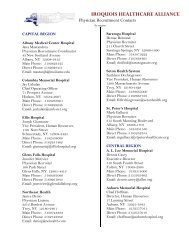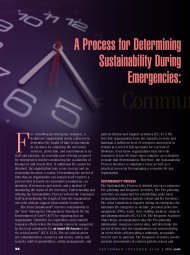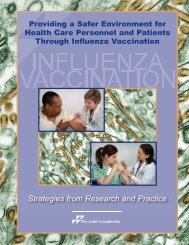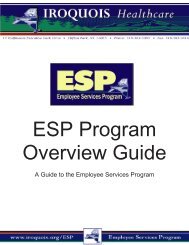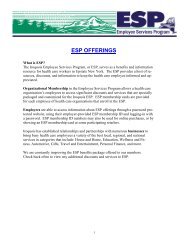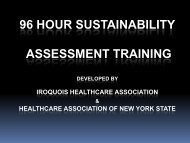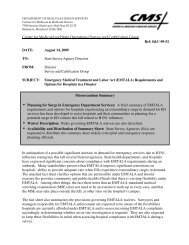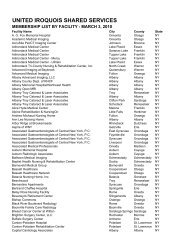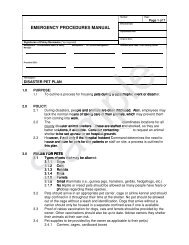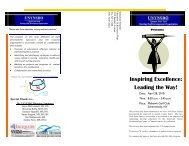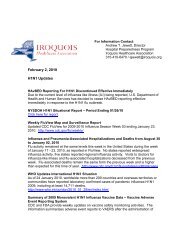NYS Public Health Legal Manual: A Guide for Judges, Attorneys ...
NYS Public Health Legal Manual: A Guide for Judges, Attorneys ...
NYS Public Health Legal Manual: A Guide for Judges, Attorneys ...
You also want an ePaper? Increase the reach of your titles
YUMPU automatically turns print PDFs into web optimized ePapers that Google loves.
NEW YORK STATE PUBLIC HEALTH LEGAL MANUAL § 1.106<br />
In those instances where statutory immunity would not apply,<br />
actions against governmental entities, officials and employees, and<br />
public health workers and other emergency responders would be<br />
limited by general common law principles of liability. See, e.g.,<br />
Crayton v. Larabee, 220 N.Y. 493, 502 (1917) [action <strong>for</strong> damages<br />
<strong>for</strong> quarantine; no liability <strong>for</strong> “mere error in judgment” but action<br />
may be maintained if decision to quarantine was “arbitrary, unreasonable<br />
or oppressive,” or in excess of authority]; Caristo v. Sanzone,<br />
96 N.Y.2d 172, 175 (2001) [emergency action doctrine—a<br />
person faced with “a sudden and unexpected circumstance which<br />
leaves little or no time <strong>for</strong> thought, deliberation or consideration” is<br />
judged on whether response is that of a reasonably prudent person<br />
under the circumstances]. See, in general, McLean v. City of New<br />
York, 12 N.Y.3d 194, 203 (2009) [“Government action, if discretionary,<br />
may not be a basis <strong>for</strong> liability, while ministerial actions may be,<br />
but only if they violate a special duty owed to the plaintiff, apart<br />
from any duty to the public in general.”].<br />
<strong>Public</strong> employees may be eligible to receive indemnification from<br />
the state or locality should they be subject to liability. <strong>Public</strong> Officers<br />
Law [POL] §§ 17 (defense and indemnification of state officers<br />
and employees) and 18 (defense and indemnification of local officers<br />
and employees) [both af<strong>for</strong>ding public employees, including<br />
“volunteer[s] expressly authorized to participate in a publicly sponsored<br />
volunteer program,” representation and indemnification <strong>for</strong><br />
acts while the employees were acting within the scope of their public<br />
employment, but not indemnification where the injury or damage<br />
resulted from intentional wrongdoing]; General Municipal Law<br />
[GML] § 50-k(1)(e), (3) [same as to employees of the City of New<br />
York and authorized volunteers]. Should the immunity provisions of<br />
the Executive Law not cover an employee (or an authorized volunteer)<br />
of a municipality or other political subdivision of the state, the<br />
immunity provisions directly applicable to the political subdivisions<br />
themselves may be able to serve as a basis <strong>for</strong> immunity <strong>for</strong> their<br />
employees because of the legal obligation of the political subdivisions<br />
to expend public moneys to indemnify the employees. See<br />
Ebert v. New York City <strong>Health</strong> and Hospitals Corporation, 82<br />
N.Y.2d 863, 866 (1993) [holding that HHC’s obligation to indem-<br />
59



